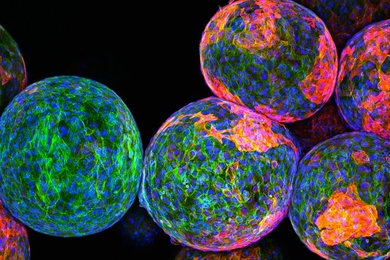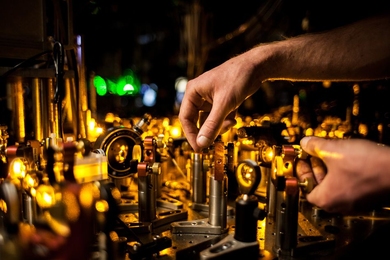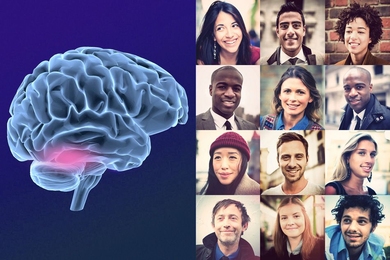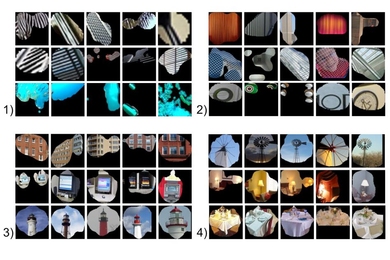Designing better medical implants
Optimal size and shape allow implantable devices to last longer in the body.
Translating thought to print
Researchers explore mechanics of silk to design materials with high strength and low density.
A “graduation” from poverty
Study: Anti-poverty intervention provides sustained boost to incomes and wealth.
Learn a language while you text
Graduate student's “WaitChatter” app teaches vocabulary during moments in between text and instant-message replies.
Researchers identify new target for anti-malaria drugs
Manipulating the permeability of a type of vacuole could help defeat malarial parasites.
Researchers build new fermion microscope
Instrument freezes and images 1,000 individual fermionic atoms at once.
Faster, smaller, more informative
Device can measure the distribution of tiny particles as they flow through a microfluidic channel.
MIT and Masdar Institute work together to transform an oil-based economy
Researchers collaborate on innovative water, energy, and next-generation technology projects.
Removing reflections from photos taken through windows
New algorithm exploits multiple reflections in individual images to distinguish reflection from transmission.
Object recognition for free
System designed to label visual scenes according to type turns out to detect particular objects, too.
Sustainability of the built environment
Professor Oral Buyukozturk has catalyzed multidisciplinary ventures to advance sustainable designs for infrastructure in Kuwait and elsewhere.
Electrons corralled using new quantum tool
“Whispering gallery” effect confines electrons, could provide basis for new electron-optics devices.














